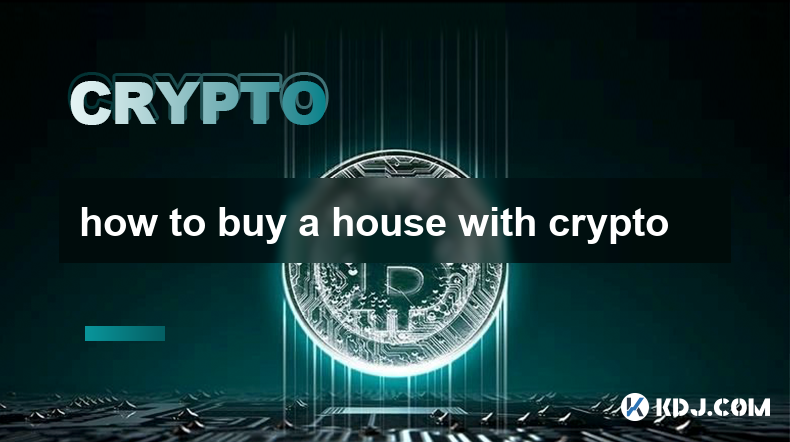-
 Bitcoin
Bitcoin $101,898.5005
-0.75% -
 Ethereum
Ethereum $2,258.1125
-1.07% -
 Tether USDt
Tether USDt $1.0004
0.01% -
 XRP
XRP $2.0178
-2.93% -
 BNB
BNB $624.0243
-1.53% -
 Solana
Solana $134.3298
-0.90% -
 USDC
USDC $0.9999
0.01% -
 TRON
TRON $0.2675
-2.05% -
 Dogecoin
Dogecoin $0.1538
-1.96% -
 Cardano
Cardano $0.5482
-1.11% -
 Hyperliquid
Hyperliquid $35.5636
5.45% -
 Bitcoin Cash
Bitcoin Cash $453.4902
-1.66% -
 Sui
Sui $2.5134
-2.97% -
 UNUS SED LEO
UNUS SED LEO $9.1292
1.77% -
 Chainlink
Chainlink $11.8457
-1.60% -
 Stellar
Stellar $0.2312
-2.73% -
 Avalanche
Avalanche $16.9721
0.29% -
 Toncoin
Toncoin $2.7549
-3.82% -
 Shiba Inu
Shiba Inu $0.0...01081
-1.10% -
 Litecoin
Litecoin $80.8250
-0.71% -
 Hedera
Hedera $0.1374
0.21% -
 Monero
Monero $305.4827
-2.36% -
 Ethena USDe
Ethena USDe $1.0006
0.00% -
 Dai
Dai $1.0000
-0.01% -
 Polkadot
Polkadot $3.2085
-3.12% -
 Bitget Token
Bitget Token $4.0845
-3.13% -
 Uniswap
Uniswap $6.3353
-1.63% -
 Pi
Pi $0.5085
-0.70% -
 Pepe
Pepe $0.0...08913
-3.82% -
 Aave
Aave $232.7090
-0.58%
how to buy a house with crypto
To purchase a house using crypto, one should first research the regulatory landscape in their area to ensure compliance and avoid legal complications.
Jan 29, 2025 at 12:06 am

Key Points:
- Understand the current regulatory landscape for cryptocurrencies in your area.
- Choose a reputable crypto exchange and create an account.
- Determine your budget and explore different mortgage options.
- Prepare the necessary documentation, including proof of income, assets, and identity.
- Work with a real estate agent who specializes in crypto transactions.
- Negotiate the terms of the purchase agreement, including the use of crypto.
- Secure a crypto mortgage through a specialized lender.
- Transfer the crypto funds to the designated escrow account.
Step-by-Step Guide:
1. Understand the Regulatory Landscape:
The regulatory environment for cryptocurrencies varies significantly across jurisdictions. Research the relevant laws and guidelines in your area to ensure compliance and avoid potential legal complications. Some countries have implemented clear regulations for crypto transactions, while others are still developing their frameworks.
2. Choose a Reputable Crypto Exchange:
Select a reputable cryptocurrency exchange that supports the trade of assets you hold. The exchange should have strong security measures, a user-friendly platform, and competitive trading fees. Conduct thorough research to identify exchanges with a proven track record and a solid reputation within the industry.
3. Determine Your Budget and Explore Mortgage Options:
Establish a realistic budget based on your financial situation and the value of your crypto holdings. Explore different mortgage options, including traditional loans, crypto-backed loans, and hybrid products that combine traditional financing with crypto collateral. Compare interest rates, loan terms, and fees to secure the most favorable arrangement.
4. Prepare Necessary Documentation:
Gather the required documentation for the mortgage application process, including proof of income, assets, and identity. These may include bank statements, tax returns, utility bills, and a government-issued ID. Organize your documents clearly and ensure they meet the lender's requirements.
5. Work with a Real Estate Agent:
Engage the services of a real estate agent who specializes in crypto transactions. They can provide valuable insights into the local market, assist in property identification, and negotiate the purchase contract on your behalf. Look for agents with experience in facilitating crypto-based purchases.
6. Negotiate the Purchase Agreement:
Thoroughly review the purchase agreement and ensure that the terms are clear and acceptable. Negotiate the purchase price, closing date, and other relevant details. The agreement should explicitly state the use of cryptocurrencies as the primary or partial form of payment.
7. Secure a Crypto Mortgage:
Identify specialized lenders who offer crypto-backed mortgages. Compare the terms, interest rates, and loan-to-value ratios available from different lenders. Select the lender that offers the most favorable conditions and complete the mortgage application process.
8. Transfer Crypto Funds:
Once the mortgage is approved, transfer the necessary amount of cryptocurrencies from your exchange account to the designated escrow account. Ensure proper fund transfer details are provided to avoid any delays or errors in processing.
FAQs:
1. Can I use any cryptocurrency to buy a house?
The specific cryptocurrencies accepted for real estate purchases vary depending on the lender and the prevailing market conditions. However, Bitcoin (BTC) and Ethereum (ETH) are commonly recognized and accepted due to their established presence in the crypto ecosystem.
2. What are the benefits of using cryptocurrencies to buy a house?
Using cryptocurrencies offers several potential benefits, including:
- Faster transaction times compared to traditional wire transfers.
- Reduced transaction fees and potentially lower closing costs.
- Potential for appreciation in the value of crypto assets over time.
- Disclaimer and Clarification: The provided information is solely for educational purposes and should not be construed as financial advice. Cryptocurrency markets are highly volatile, and investments involve substantial risks. Always conduct thorough research and consult with qualified professionals before making any investment decisions.
Disclaimer:info@kdj.com
The information provided is not trading advice. kdj.com does not assume any responsibility for any investments made based on the information provided in this article. Cryptocurrencies are highly volatile and it is highly recommended that you invest with caution after thorough research!
If you believe that the content used on this website infringes your copyright, please contact us immediately (info@kdj.com) and we will delete it promptly.
- Bitcoin Price Wobbles: Crash Watch and Key Support Levels
- 2025-06-23 16:25:12
- Navigating the Crypto Seas: Charting a Course Through Bull Runs and Bear Markets
- 2025-06-23 16:25:12
- BNB Price Check: Stablecoin Surge vs. Prediction Rollercoaster
- 2025-06-23 14:25:12
- Metaplanet's Bitcoin Bonanza: Holdings Skyrocket Amidst Market Swings
- 2025-06-23 14:25:12
- Global Meltdown, Investors, and Safe Havens: Navigating the Storm
- 2025-06-23 14:30:12
- NFT Sales Snapshot: Guild of Heroes, Polygon, and the Market's Shifting Sands
- 2025-06-23 15:25:12
Related knowledge

What is Ethereum’s Slashing mechanism and how to punish malicious behavior?
Feb 20,2025 at 03:08am
Key PointsOverview of slashingDifferent types of slashing in EthereumIncentives and consequences of slashingIdentifying and reporting slashed validatorsOngoing discussions and potential improvementsEthereum's Slashing Mechanism: Punishing Malicious BehaviorEthereum's slashing mechanism is an essential tool for ensuring network security and punishing mal...

What is the verifier node of Ethereum and how to become a verifier?
Feb 19,2025 at 06:00pm
The Verifier Node of Ethereum: A Comprehensive GuideKey Points:What is a Verifier Node?How to Become a Verifier NodeResponsibilities and Rewards of a Verifier NodeMinimum Requirements for Becoming a Verifier NodePotential Difficulties in Running a Verifier Node1. What is a Verifier Node?A Verifier Node is an independent entity on the Ethereum network th...

What is Ethereum’s staking, and how to participate and earn money?
Feb 19,2025 at 04:37pm
Key Points:Understanding Ethereum's Staking MechanismSteps to Participate in StakingBenefits and Rewards of StakingSecurity and Risk ConsiderationsTechnical Requirements and Hardware OptionsPotential Challenges and Troubleshooting TipsFAQs on Ethereum StakingWhat is Ethereum's Staking?Proof-of-Stake (PoS) is a consensus mechanism used in blockchain netw...

What is Ethereum’s DAO (Decentralized Autonomous Organization) and how does it work?
Feb 20,2025 at 03:12am
Key PointsDefinition and Structure of a DAOGovernance and Decision-Making in DAOsBenefits and Use Cases of DAOsChallenges and Limitations of DAOsWhat is Ethereum's DAO (Decentralized Autonomous Organization) and How Does It Work?Definition and Structure of a DAOA Decentralized Autonomous Organization (DAO) is an innovative governance and management fram...

What is Ethereum's multi-signature wallet and how to improve security?
Feb 20,2025 at 02:18pm
Key Points:Understanding the Concept of a Multi-Signature WalletBenefits and Drawbacks of Multisig WalletsRequirements for Setting Up a Multisig WalletStep-by-Step Guide to Generating a Multisig WalletImplementing Strategies for Enhanced Security1. Understanding the Concept of a Multi-Signature WalletA multi-signature (multisig) wallet in the Ethereum e...

What is Ethereum's oracle and how to provide data for smart contracts?
Feb 21,2025 at 01:30am
Key Points:Understanding the concept of oracles in EthereumExploring different types of oraclesDetailed guide on how to provide data for smart contractsAddressing potential challenges and considerationsWhat is Ethereum's Oracle?Oracles are crucial components in the Ethereum ecosystem, enabling smart contracts to access real-world data and off-chain even...

What is Ethereum’s Slashing mechanism and how to punish malicious behavior?
Feb 20,2025 at 03:08am
Key PointsOverview of slashingDifferent types of slashing in EthereumIncentives and consequences of slashingIdentifying and reporting slashed validatorsOngoing discussions and potential improvementsEthereum's Slashing Mechanism: Punishing Malicious BehaviorEthereum's slashing mechanism is an essential tool for ensuring network security and punishing mal...

What is the verifier node of Ethereum and how to become a verifier?
Feb 19,2025 at 06:00pm
The Verifier Node of Ethereum: A Comprehensive GuideKey Points:What is a Verifier Node?How to Become a Verifier NodeResponsibilities and Rewards of a Verifier NodeMinimum Requirements for Becoming a Verifier NodePotential Difficulties in Running a Verifier Node1. What is a Verifier Node?A Verifier Node is an independent entity on the Ethereum network th...

What is Ethereum’s staking, and how to participate and earn money?
Feb 19,2025 at 04:37pm
Key Points:Understanding Ethereum's Staking MechanismSteps to Participate in StakingBenefits and Rewards of StakingSecurity and Risk ConsiderationsTechnical Requirements and Hardware OptionsPotential Challenges and Troubleshooting TipsFAQs on Ethereum StakingWhat is Ethereum's Staking?Proof-of-Stake (PoS) is a consensus mechanism used in blockchain netw...

What is Ethereum’s DAO (Decentralized Autonomous Organization) and how does it work?
Feb 20,2025 at 03:12am
Key PointsDefinition and Structure of a DAOGovernance and Decision-Making in DAOsBenefits and Use Cases of DAOsChallenges and Limitations of DAOsWhat is Ethereum's DAO (Decentralized Autonomous Organization) and How Does It Work?Definition and Structure of a DAOA Decentralized Autonomous Organization (DAO) is an innovative governance and management fram...

What is Ethereum's multi-signature wallet and how to improve security?
Feb 20,2025 at 02:18pm
Key Points:Understanding the Concept of a Multi-Signature WalletBenefits and Drawbacks of Multisig WalletsRequirements for Setting Up a Multisig WalletStep-by-Step Guide to Generating a Multisig WalletImplementing Strategies for Enhanced Security1. Understanding the Concept of a Multi-Signature WalletA multi-signature (multisig) wallet in the Ethereum e...

What is Ethereum's oracle and how to provide data for smart contracts?
Feb 21,2025 at 01:30am
Key Points:Understanding the concept of oracles in EthereumExploring different types of oraclesDetailed guide on how to provide data for smart contractsAddressing potential challenges and considerationsWhat is Ethereum's Oracle?Oracles are crucial components in the Ethereum ecosystem, enabling smart contracts to access real-world data and off-chain even...
See all articles
























































































